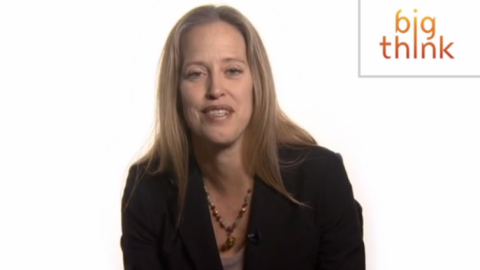Wendy Kopp on How Technology Can Improve Education

“Education must be the only sector that hasn’t already been completely revolutionized by technology,” says Wendy Kopp, the CEO and co-founder of Teach For All, and the founder and chair of Teach for America. “And I think there’s so much that technology can do. We should be thinking about how to use the gaming technology that is so addictive for kids to a good end for educational purposes.”
Kopp is one of education’s leading innovators. She founded Teach for America 25 years ago to help develop future leaders. “Teach for America recruits top recent college grads, young professionals, people we believe are the US’s most promising future leaders, and asks them to commit two years to teach in high need urban and rural communities,” says Kopp. “The big idea is really to generate a growing force of leaders who not only have an immediate impact during the two years they initially commit, but who end up working throughout their lives from inside of education, from outside of it, at every level of policy to effect the fundamental kind of systemic changes necessary to ultimately insure that all kids in our country fulfill their true potential.”
The Teach For America model has gone global withTeach for All. There are 33 programs in countries around the world, including India and Pakistan. Demand to join the program is high, showing a great deal of motivation among young people who want to serve their communities. “This year Teach for India had 13,000 people competing for about 500 spots. Teach for Pakistan had more than 1,000 people competing for 40 spots. And Enseña por Columbia had 2,400 folks competing for about 50 or 60 spots,” Kopp says.
The selection process is rigorous, as the program requires individuals with strong leadership characteristics. “For people who have taken on big challenges, have persevered in the face of obstacles to reach big goals,” explains Kopp on what Teach for America and Teach for All look for. “People who can influence and motivate others, who are strong problem solvers. People who will work with a lot of respect and humility.”
Kopp is on the forefront of developing tomorrow’s leaders. But what can be done to leverage technology to improve the quality of education? The answer lies in the data.
“There’s just so much we need technology to do,” she says. But bringing technology into classrooms requires more than just giving students tablets. The focus should be on the data. “We should be individualizing instruction, utilizing that data, to actually give teachers the tools necessary to meet the needs of a very diverse group of kids which exists in every class.”
Tablets, computers, and other devices are no substitute for building enriching relationships in the classroom. “I don’t think we’re going to be able to replace just the kind of importance and power of personal relationships,” she says. “Whenever we’ve seen the kids in the most disadvantaged context truly excel, always it’s been in classrooms and in whole schools where there is a clear vision of where the kids have the potential to be.”
Watch Big Think‘s interview with Kopp at the Global Education & Skills Forum:





